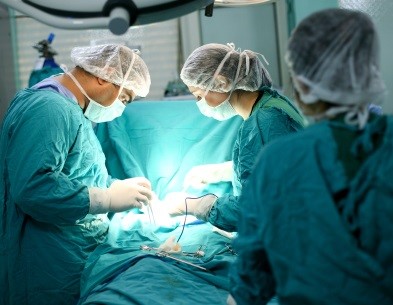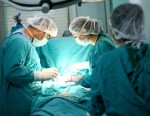Exposure to Fatal Disease Could Raise Hospital Malpractice Questions

 Eighteen patients may have been exposed to a fatal disease after undergoing brain surgery in the same North Carolina Hospital. Patients of Novant Health Forsythe Medical Center are receiving notification from the hospital that their recent surgeries may have exposed them to an illness known as Creutzfeldt Jakob Disease.
Eighteen patients may have been exposed to a fatal disease after undergoing brain surgery in the same North Carolina Hospital. Patients of Novant Health Forsythe Medical Center are receiving notification from the hospital that their recent surgeries may have exposed them to an illness known as Creutzfeldt Jakob Disease.
CJD is a human version of “mad cow” disease, which first impacts cognitive function and is always fatal, raising questions of possible hospital malpractice by medical center staff.
Notifications sent after potential contamination discovered
The hospital sent out a press release and began notifying patients individually after it was discovered another patient who had been operated on at the hospital was diagnosed with CJD. Instruments used to operate on the infected patient were subsequently used on 18 other patients before it was discovered the original patient had the disease. Although the instruments used were sterilized, they did not receive special sterilization techniques to ensure no CJD contamination would occur.
According to a report at CNN, the patient had exhibited possible symptoms of CJD prior to the initial surgery. Guidelines from the Centers for Disease Control and Prevention recommend disposing of instruments used on a patient with CJD symptoms. Another option is to use an intense decontamination process on the instruments before using them to operate on another patient. Novant Health did not follow those guidelines in this situation, which could be grounds for a hospital malpractice lawsuit if one of the 18 patients is diagnosed with CJD later on.
About Creutzfeldt Jakob Disease
CJD is a degenerative disease that originates in the brain and impacts memory and cognitive function. Although the symptoms of CJD are similar to those of Alzheimer’s disease, CJD progresses much faster. Risk factors for developing CJD include heredity, age and exposure to contaminated brain tissue. It cannot be transmitted via normal means like coughing, touch or sexual contact. This makes the incidence of CJD relatively low, with only about one case in one million people occurring annually worldwide.
When the disease does strike, the results are tragic. Patients with CJD typically experience a rapid decline in cognitive function, personality changes, anxiety and depression. People with the disease often end up in a coma, and most die before the one-year mark after their diagnosis. Complications like infections, heart failure or pneumonia are often the actual cause of death. There is no effective treatment option for CJD at this time.
Potential failure to diagnose CJD
Despite the concern, officials of Novant Health have assured patients that the risk of contracting CJD in these circumstances is very small. No transmission of the disease via contaminated surgical instruments has been seen since 1976. Still the hospital was making no excuses for the error. Jeff Lindsay, president of Novant Health, told CNN, “On behalf of the entire team at Novant Health, I apologize to the patients and their families for having caused this anxiety.”
This is not the first CJD scare of its kind. In September 2013, patients received warnings from hospitals in both New Hampshire and Massachusetts, after contaminated instruments were shared between the hospitals. That potential contamination affected 13 brain surgery patients between the two states.
If a patient in either of these circumstances develops CJD, they may not know they have the illness for a number of years. There is no early test to detect the disease, and onsets may be very slow. However, in the unlikely event that a patient is diagnosed with CJD in the future, it will remain to be seen whether a hospital malpractice lawsuit could be filed. Surgical errors made up nearly one-fourth of the medical malpractice payouts in 2012, trailing only behind failure to diagnose as an allegation.

